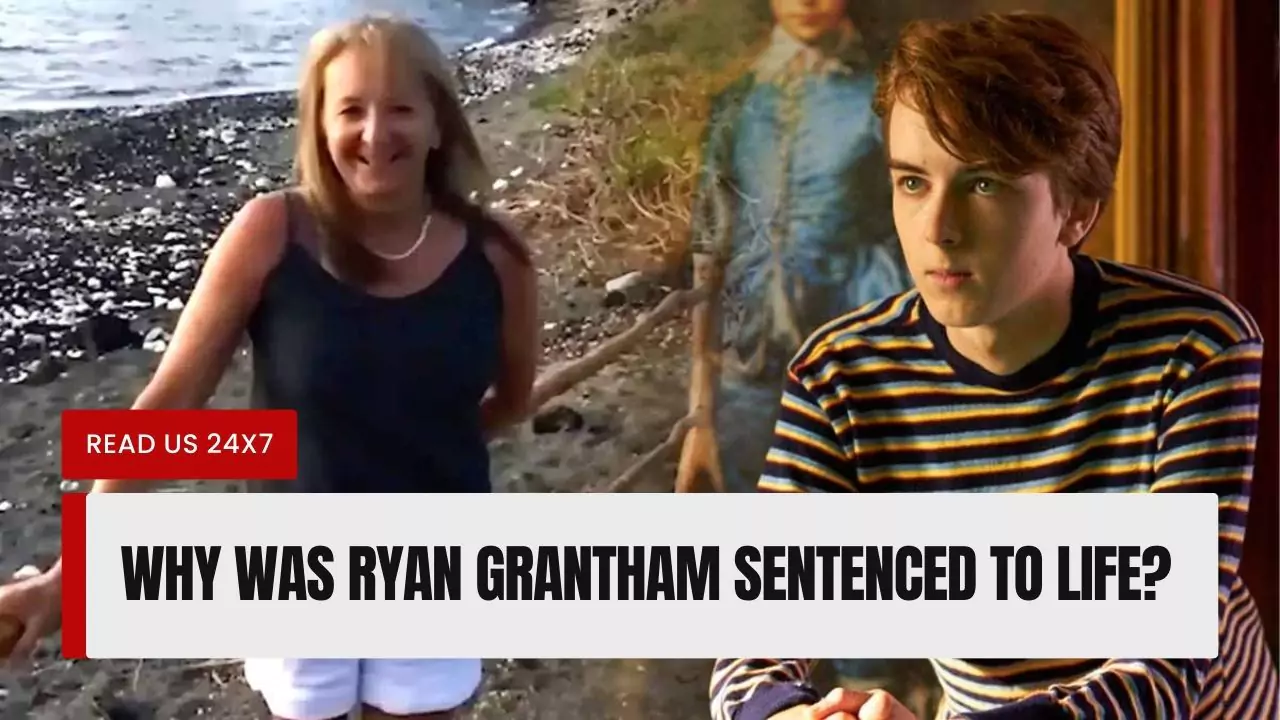In 2020, Canadian actor Ryan Grantham was sentenced to life in prison for murdering his mother, Barbara Waite.
His parole eligibility will be determined after 14 years, according to a Vancouver Supreme Court official.
In this article, we will explore the details of his case, the possible factors that led to his sentencing, and the controversy surrounding his sentence.
The Case of Ryan Grantham
Background Information on the Case
Grantham, 24, pleaded guilty to second-degree murder for shooting his mother in the back of the head as she played piano in their home, north of Vancouver, on March 31, 2020. He then recorded a video with a GoPro camera, in which he confessed to the killing and showed his mother’s lifeless body. He also wrote in his journal that he had planned to assassinate Canadian Prime Minister Justin Trudeau, and had prepared three guns, ammunition, and 12 Molotov cocktails for that purpose. He drove for a few hours toward Trudeau’s residence, before turning around and driving to a Vancouver police station, where he told an officer: “I killed my mother.”
Charges and Sentencing
Grantham was initially charged with first-degree murder but later pleaded guilty to second-degree murder, which carries a mandatory life sentence with no chance of parole for 10 to 25 years. The Crown and the defense jointly recommended a parole eligibility period of 14 years, which was accepted by Justice Kathleen Ker on September 22, 2021. Ker described the case as tragic, heartbreaking, and “life-shattering” for both Grantham and his mother’s family.
Possible Factors Leading to Sentencing
Evidence Presented in Court
The court heard that Grantham had been suffering from anxiety and depression for several years, and had expressed suicidal and homicidal thoughts in the months leading up to his mother’s killing. He had also been smoking marijuana and watching violent videos on the dark web. He told the police that he had no motive for killing his mother, whom he loved very much, but that he felt “compelled” to do it. The court also heard that Grantham had shown remorse and empathy for his actions, and had cooperated with the police and the mental health professionals who assessed him.
Previous Criminal Record
Grantham had no prior criminal record or history of violence. He had been a successful child actor who had appeared in several TV shows and movies. He had also been a student at Simon Fraser University, where he was studying criminology.
Impact on Victim and their Family
The court heard victim impact statements from Grantham’s father, brother, and aunt, who expressed their grief, anger, and confusion over his actions. They said they still loved him, but could not understand why he killed their mother and sister, who was a kind, generous and loving person. They also said they hoped he would get the help he needed to heal from his mental illness.
The Controversy Surrounding the Sentence
Public Opinion
Grantham’s sentence has sparked mixed reactions from the public. Some people have expressed sympathy for him and his family, and have praised him for turning himself in and taking responsibility for his actions. They have also called for more awareness and support for mental health issues among young people. Others have criticized him for being a cold-blooded killer who deserved a harsher punishment. They have also questioned the fairness of the justice system that allowed him to plead guilty to a lesser charge and get a relatively lenient sentence.
Discussion of the Severity of the Sentence
Some legal experts have argued that Grantham’s sentence was appropriate given the circumstances of his case. They have pointed out that second-degree murder is still a very serious offense that carries a life sentence, and that Grantham will have to face a parole board before he can be released. They have also noted that Grantham had no previous criminal record or history of violence and that he had shown remorse and empathy for his actions. Other legal experts have contended that Grantham’s sentence was too lenient given the gravity of his crime. They have argued that he should have been convicted of first-degree murder, which carries a mandatory life sentence with no chance of parole for 25 years. They have also claimed that Grantham had not shown genuine remorse or empathy, but rather acted out of self-preservation and fear of being caught.
Calls for Appeal or Reconsideration
As of now, there have been no official appeals or requests for reconsideration of Grantham’s sentence from either the Crown or the defense. However, some of Grantham’s supporters have launched a petition on Change.org, asking for his sentence to be reduced or commuted. They have cited his mental illness, his cooperation with the police, and his potential for rehabilitation as reasons for their request. On the other hand, some of Grantham’s detractors have launched a counter-petition on Change.org, asking for his sentence to be increased or upheld. They have cited his premeditation, his lack of motive, and his danger to society as reasons for their request.


